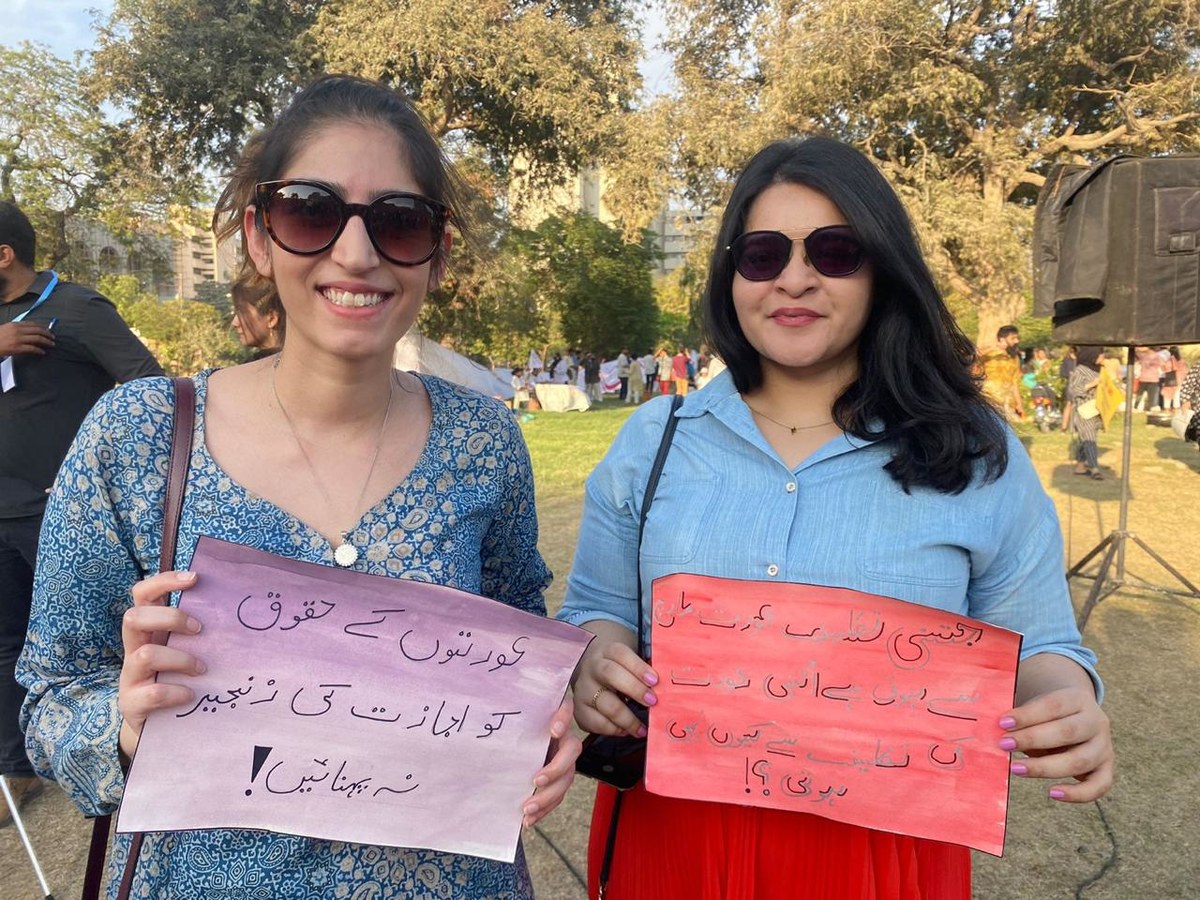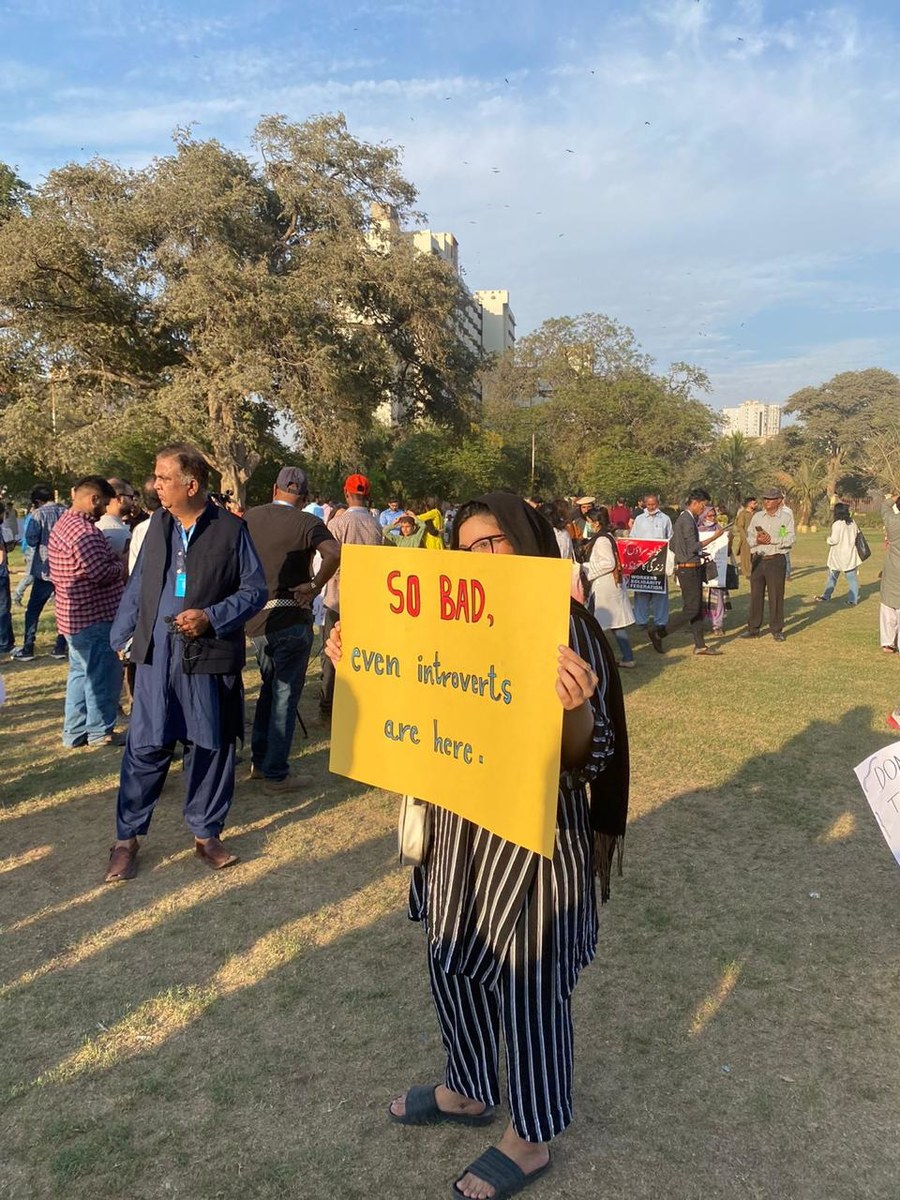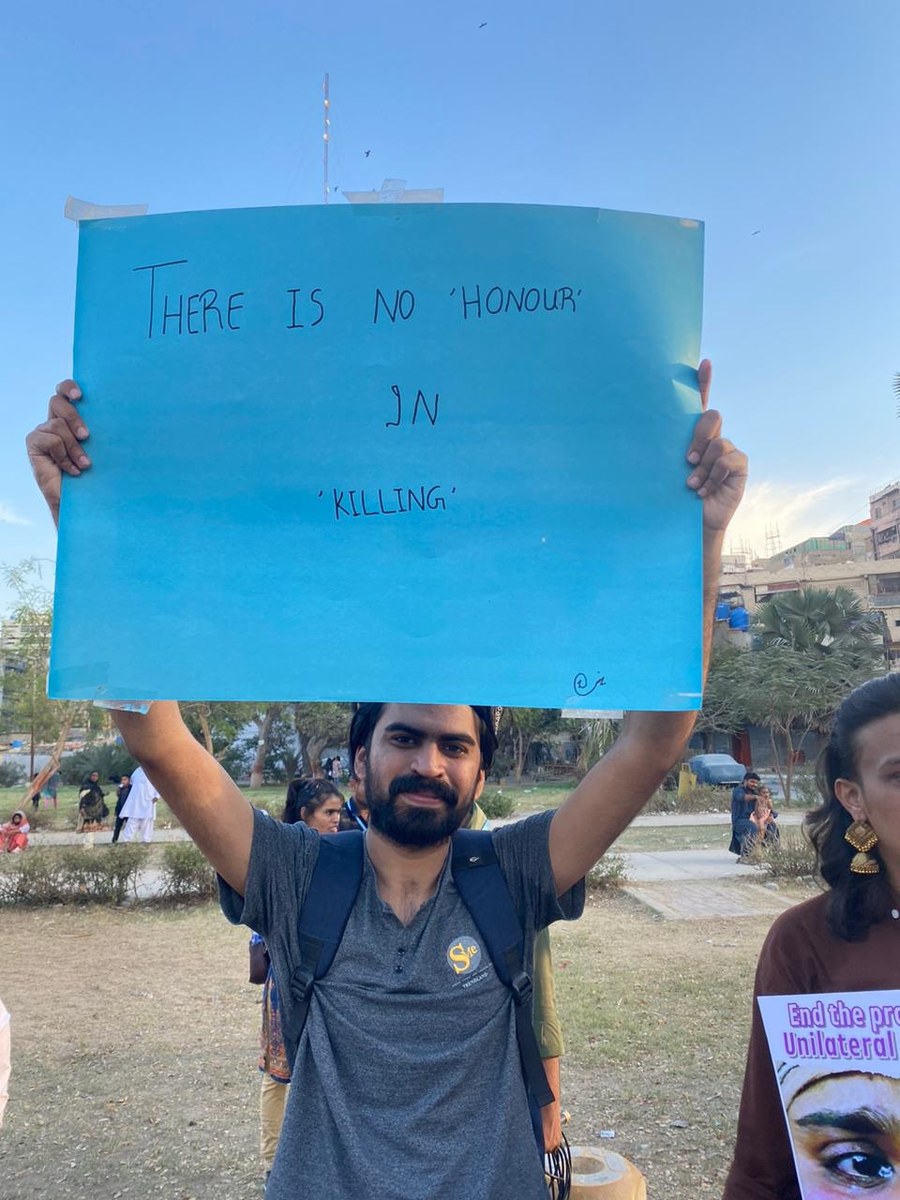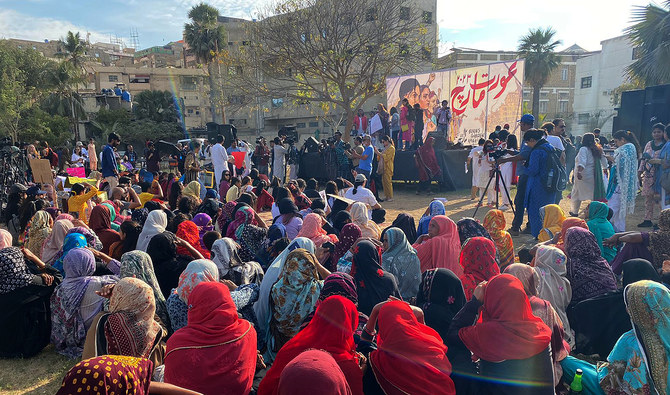KARACHI: Hundreds of women, transgenders, and men rallied in Pakistan’s southern port city of Karachi on Sunday to demand economic rights, as decades-high inflation and the disastrous effects of climate change trouble Pakistan’s middle and lower-middle classes.
The “Aurat March” (Women’s March in Urdu) is an annual march event held across Pakistan to observe International Women’s Day on March 8. The pro-women rallies have faced a backlash from conservative forces since they first began in 2018. In 2021, blasphemy allegations were leveled at marchers following tampered video clips of a demonstration that emerged on social media.
Aurat March rallies have courted controversy in the past because of banners and placards waved by participants that raise subjects such as divorce, sexual harassment, and menstruation. Despite the challenges, organizers maintain the march aims to raise awareness of pressing issues faced by Pakistani women, including violence and sexual exploitation.
The Karachi chapter of Aurat March organized their rally on March 12 at Burns Garden instead of on March 8, saying that the date was pushed ahead as March 8 was a weekday, which would mean women from the working-class segment would miss out on a day’s wages.
This year’s march was held in the backdrop of soaring inflation, which climbed to 31.5 percent in February 2023 from 12.2 percent in the same period last year. Devastating floods from last year’s monsoon season also killed over 1,700 people in Pakistan and displaced over 33 million.
“Inflation, rising prices, food prices, poverty, the effect of climate change on women’s lives, the effects of floods on women, all these are issues that we are discussing this year,” Sheema Kermani, a prominent Pakistani dancer, social media activist, and an organizer of the march, told Arab News.
“This time our emphasis is on poverty,” she added, explaining that soaring inflation affects women and their health.
“And we are looking for social security, we are looking for safety, and we are looking for recognition of our rights,” she added. The social activist demanded women to be paid fair wages for the work they do both within their homes and outside.

A woman holds a placard during the 'Aurat March' or women's march, an annual socio-political demonstration held to observe International Women's Day, in Karachi on March 12, 2023. (AN Photo)
As is the case each year, this Aurat March also featured various placards that featured a wide array of slogans. “Give a woman her rightful share of the bread,” read one. Another demanded the reversal of the ban on education for women in Afghanistan. Scores of women joined in as slogans raised by march organizers, calling for equal rights and an inclusive society, blared from speakers.

A woman holds a placard during the 'Aurat March' or women's march, an annual socio-political demonstration held to observe International Women's Day, in Karachi on March 12, 2023. (AN Photo)
Mira Sethi, a Pakistani actress, and author, rejected the perception that only elite women attend the march every year.
“People have come here from all over, there are “surkhas” [leftists] here as well, people from normal everyday life as here as well, women, the elderly and young people, all are here,” she told Arab News.
“Why does our obsession with culture start and end— especially when it comes to women— at their dressing?” she asked.
Maqsood Ali Khan, a retired civil servant, said he had accompanied his wife and two daughters to the march as a society couldn’t progress without women’s participation.
“The country cannot progress if you keep 50 percent of the population at home,” he told Arab News.

A man holds a placard during the 'Aurat March' or women's march, an annual socio-political demonstration held to observe International Women's Day, in Karachi on March 12, 2023. (AN Photo)
















